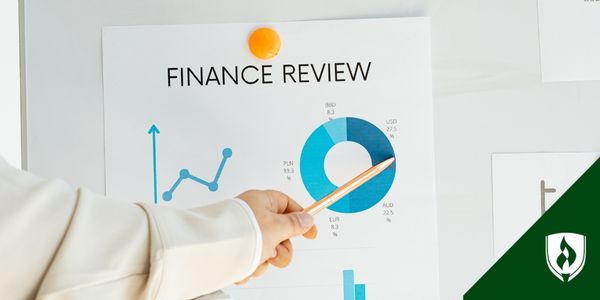
If you’ve spent the past few years getting established in a retail job, you might be wondering what comes next as you look to advance in your career. Becoming a buyer or purchasing agent is one excellent potential advancement option. This role pairs a strong foundation in business knowledge with many of the practical logistical skills you’ve likely developed in a retail role.
You already know the ins and outs of the industry and perhaps have even worked with buyers before in your current position. Your years of knowledge and experience could be put to good use in a career that will likely present a substantial step up in responsibilities and earning potential.
Now that we’ve got your attention, you probably want to know more about what buyers and purchasing agents are responsible for and the path to becoming a buyer—so let’s dive in.
What is a buyer and what do they do?
Buyers are responsible for purchasing goods and merchandise for their company to use or resell to consumers, according to the BLS.1 They analyze buying trends, manage inventory, establish relationships with suppliers and negotiate the best price for goods purchased for their company.
The specifics of their work will depend on the employer and setting—some buyers and purchasing agents may focus more on procuring raw materials for further refining, others may deal with parts and supplies, and others spend their time securing the finished products customers can purchase directly from store shelves.
As you might imagine, a lot can hinge on effective buyers and purchasing agents. Under- or over-ordering goods can have a big impact on profitability. For example, if you’re working with industrial tools and supplies, failing to procure enough supplies to fulfill customer orders can in turn grind your customer’s work to a halt and strain business relationships.
How to become a buyer: Skills, experience and education needed
Now that you know a little more about what the work entails, you naturally want to know more about what it takes to get started as a buyer. To help answer that, let’s take a closer look at the skills, experience and education that can position you for success.
What skills and abilities do buyers need?
Buyers have a unique opportunity to combine their natural people skills with research and analytical abilities. It’s easy to see why buyers need to be good with numbers: their main goal is to obtain the goods their company needs for the best price. They need to analyze variables like quality, price and shipping to determine the best option for their organization.
To get a sense of what types of skills are important in this role, we analyzed over 9,000 job postings for wholesale and retail buyers to identify some of the most commonly sought-after skills:2
- Procurement
- Purchasing
- Project management
- Negotiation skills
- Supply chain management
- Strategic sourcing
- Enterprise resource planning
- Scheduling
- Budgeting
- Cost control
As you can probably glean from the list above, it’s not all about numbers and planning. Interpersonal skills play a significant role, too. Building and maintaining relationships with vendors is a key part of the job. A buyer’s relational tasks might include getting feedback from customers, growing relationships with suppliers and attending trade fairs.
Education and certification options for buyers
Though a degree isn’t required for all of these positions, buyers and purchasing agents will typically need to earn a bachelor’s degree, according to the BLS.1
“A buyer or a purchaser commonly possesses business administration, operations management, supply chain management or entrepreneurship degrees,” says Luke Lee CEO of Palaleather®.
Earning a professional certification is another option aspiring buyers and purchasing agents should consider. The Association for Supply Chain Management® and the American Purchasing Society are just two organizations that offer certification for purchasing professionals.
How work experience can help
Depending on your current experience, making the transition to working as a buyer or purchasing agent may be a natural next step. While it is possible to find entry-level buyer roles with the right educational qualifications, there are certain positions and backgrounds that can help bolster your qualifications.
“An experience in the purchasing department is a good steppingstone for the career progression of a buyer,” says Lee.
Sales experience can also be a path toward the role of a buyer.
“Having experience in sales will help you identify the process of selling and buying, which you can use to your advantage in purchasing for your company,” says James Chapman, director of BELLAbathrooms.
Advancement opportunities for buyers
Becoming a buyer is a big step in its own right, but there’s certainly room for additional growth once you’re established.
“A buyer usually starts as an assistant buyer and works their way up to become a buyer,” says Chapman.
Experienced buyers may advance into the role of a purchasing manager, who supervises an entire team of purchasing agents, or even advance into higher leadership roles, such as procurement chief or supply chain director. Successful buyers possess a strong mix of operational knowledge within their industry, negotiation skills and planning ability—all of which can help open doors to new career paths.
Ready to make a move?
Now you know what it takes to launch a new career as a buyer, the next move is yours. If you’re ready to explore that next step, visit the Supply Chain and Logistics Management Bachelor’s degree page to learn how this program can help position you for success in this demanding industry. Check out Careers in retail worth checking out.
1Bureau of Labor Statistics, U.S. Department of Labor, Occupational Outlook Handbook, [career information accessed May 2022] www.bls.gov/ooh/. Employment conditions in your area may vary.
2Burning-Glass.com (analysis of 9,621 wholesale and retail buyer job postings April 1, 2021 – March 31, 2022).
Association for Supply Chain Management is a registered trademark of APICS, Inc.
Palaleather is a registered trademark of Yongling Chen.




